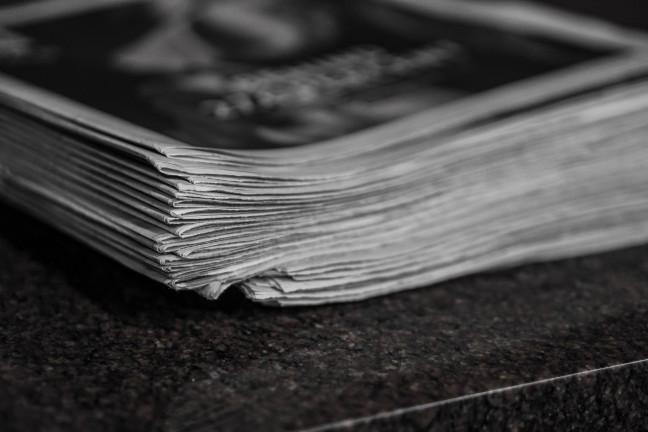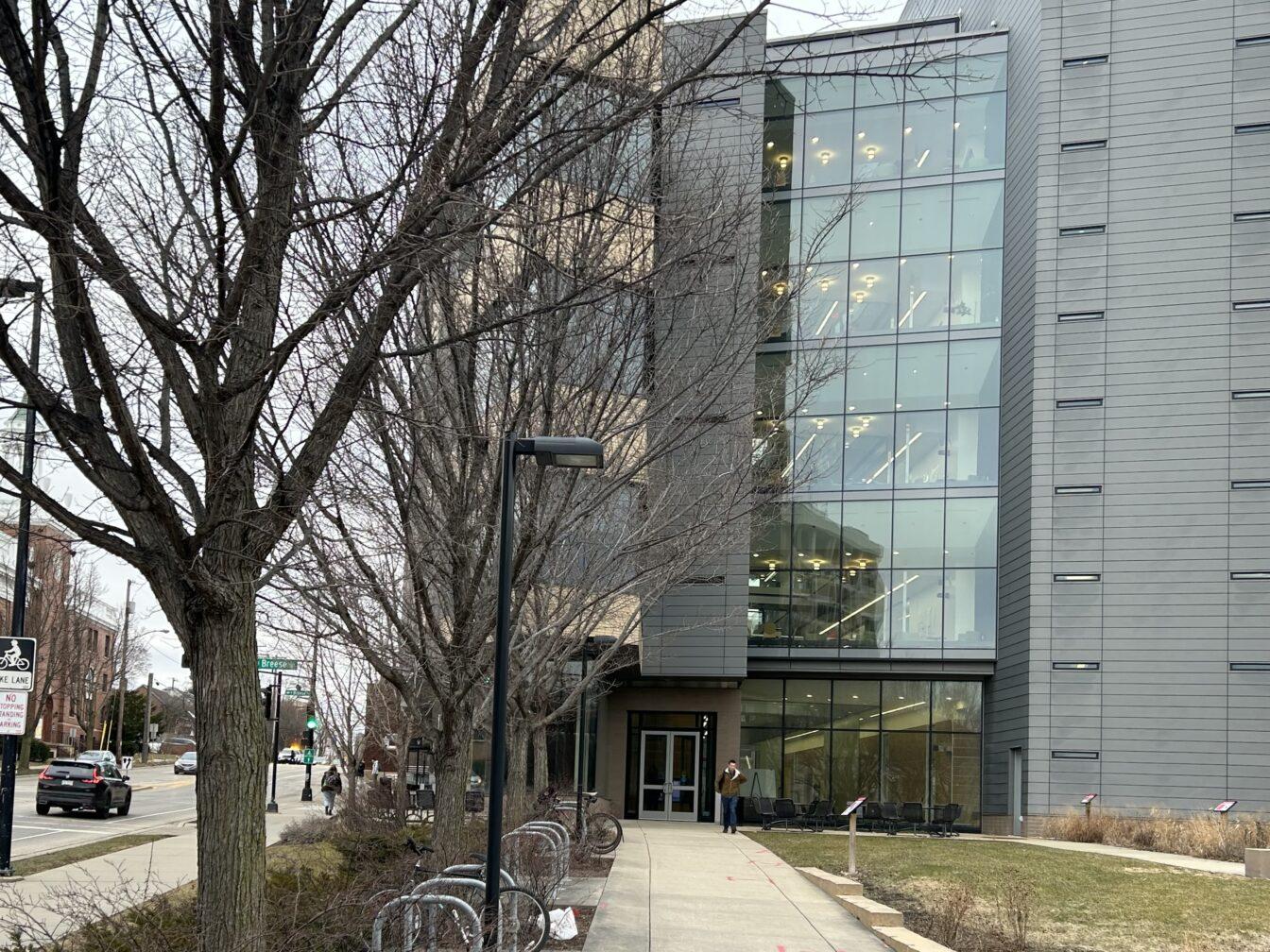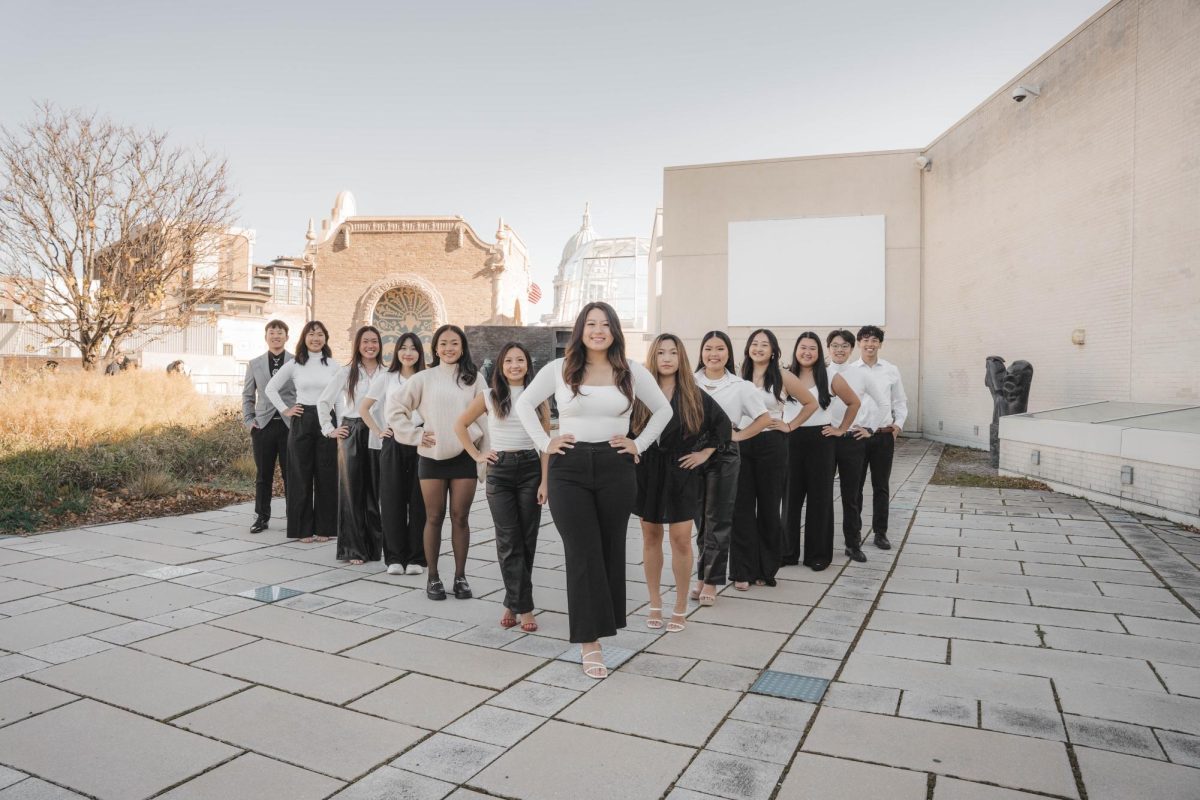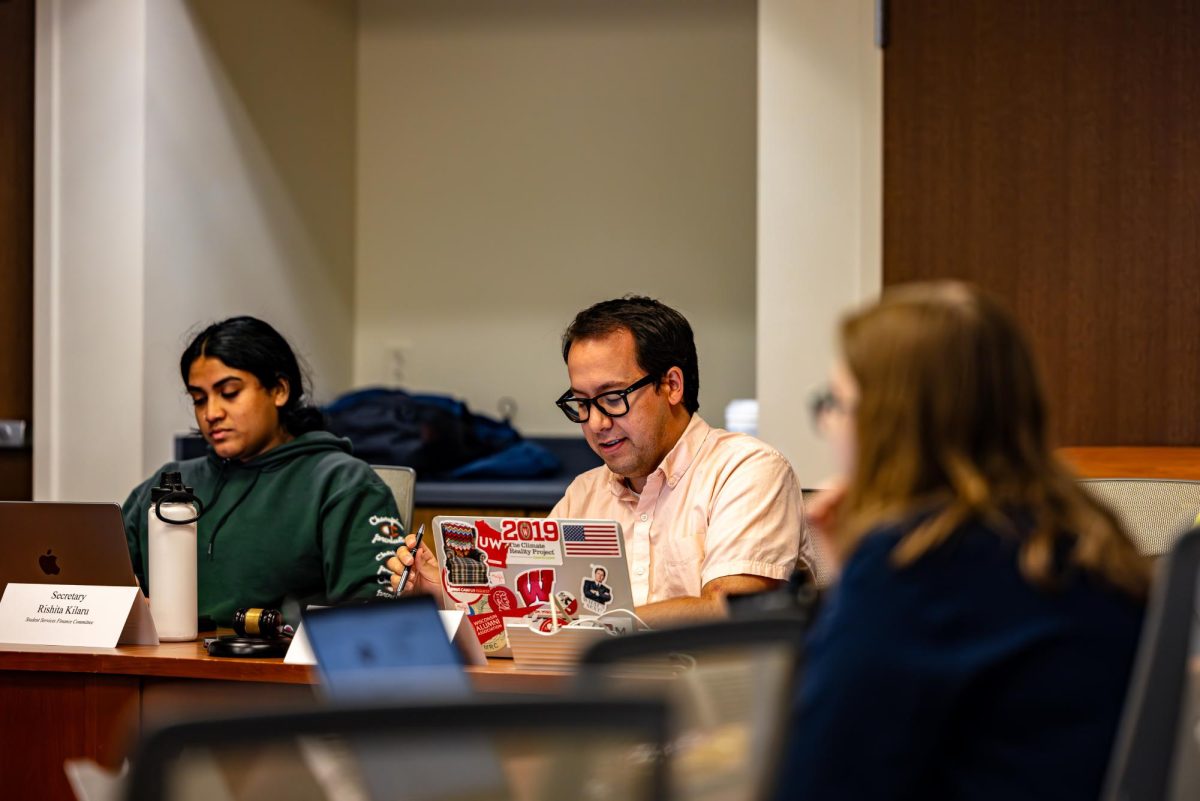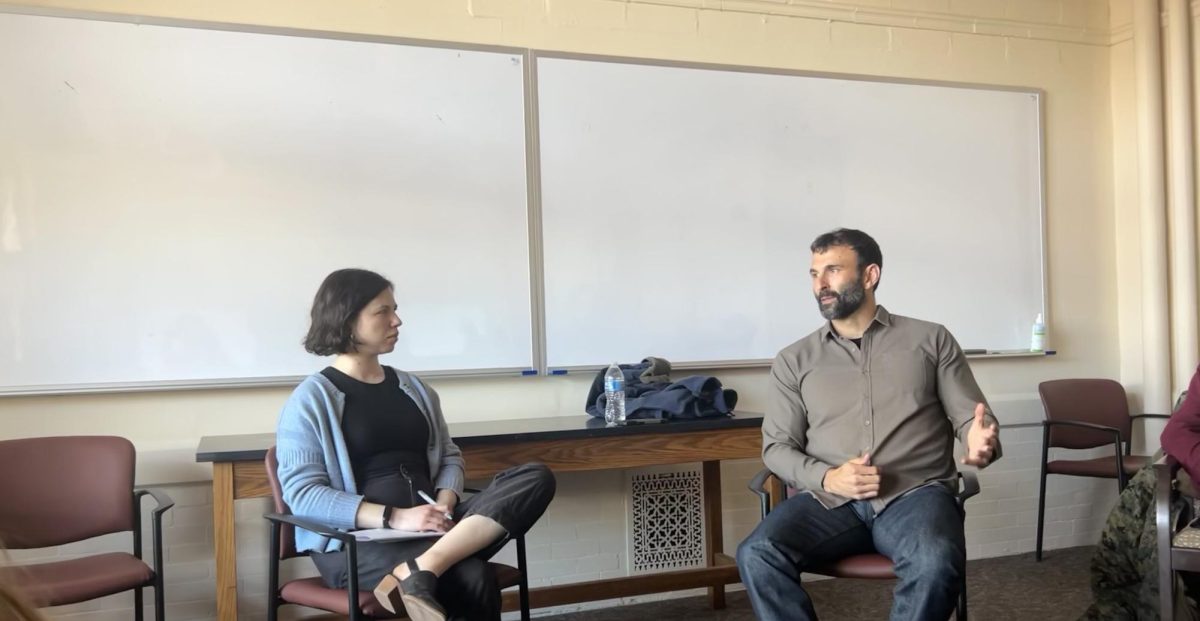Editor’s note: One of the panelists, Alice Vagun, is the editor-in-chief for The Badger Herald. Her views are strictly her own and do not represent the Herald.
A panel of student leaders agreed Monday combating sexual assault begins with awareness. And the key to awareness, the panelists said, runs straight through the media and its coverage of incidents of sexual impropriety.
At a panel hosted by the The Badger Herald in honor of Sexual Assault Awareness Month, campus leaders in student media and in sexual assault awareness and prevention met to discuss how reporters can accurately and effectively report on instances of sexual assault in an effort to combat rape culture.
The panel included Alice Vagun, editor-in-chief of The Badger Herald, Nora Burnham, campus counselor and advocate at the Rape Crisis Center, Jamie Felton, chair of Promoting Awareness, Victim Empowerment, Jacob DeCoste, event coordinator with We’re Better Than That: Men Against Sexual Assault and Megan Murphy, the chair of Student Title IX Advisory Committee at the Associated Students of Madison.
The panelists, meeting in light of intensified national discussions about sexual impropriety and journalists’ role in reporting it, discussed how the media can wield its considerable power to combat rape culture on college campuses.
Out of 318 sexual assaults reported in 2017, UW was able to investigate 11, report finds
Vagun, who covered the case of University of Wisconsin student and convicted rapist Alec Cook extensively, said the media has the power to shift “culture and attitudes” through its reporting.
“Fifty years ago, we wouldn’t be talking about sexual assault the same way that we’re talking about it today,” Vagun said. “We really have the power to look at all these conversations that are going around the country and say, ‘Okay, how do we learn from this, how do we talk about this and how can we move forward?’”
Other panelists agreed with Vagun’s assessment of the media’s power in shifting nationwide conversations and said because of this great power, the media should practice certain guidelines when reporting on issues as sensitive and nuanced as sexual assault.
DOJ launches website tracking backlog of untested sexual assault kits
Murphy said the media is incredibly powerful because it is the primary source for almost everyone on most topics, particularly those related to sexual assault. She said this is especially true for those who might not be educated about the topic and for those who have no other source of information or education.
“The media has a lot of power in being the first point of information and a lot of times the only point of information,” Murphy said. “It’s incredibly important for it to be done fairly, justly and accurately, and to have all of the issues thoroughly laid out.”
For the media, Murphy said this means refraining from making rape jokes, perpetuating rape culture, normalizing sexual assault and — most importantly — victim blaming those who have survived sexual assault..
To ensure responsible reporting in instances of sexual assault, Felton said journalists need to give victims time and space to tell their story, and shouldn’t pressure them to share stories they’re uncomfortable sharing.
“If the person seems hesitant at all, find a different person for your story,” Felton said. “During the process, giving them as much information as you can up front and ahead of time about what the story is going to be about and what direction you’re going to take is really important.”
‘Take Back the Night’ demonstrators protest sexual assault, rape culture
Felton said journalists who write stories about sexual assault should ensure their story will not place the victim in more danger or further victimize them — especially if the incident in question involves an intimate relationship or couple.
The same caution should be applied to stories surrounding sexual assault that do not follow a specific incident or case. Even if a story related to sexual assault — such as minimum sentencing laws and rape-kit backlogs — does not refer to a specific victim, the panelists should still follow responsible and respectful reporting.
All of the panelists also agreed the media plays a crucial role in informing the public and holding perpetrators accountable. While reporters make mistakes and can misreport instances of sexual assault, Vagun said the media is ultimately striving toward a greater goal of combating rape culture and sexual assault.
“The media is in no way perfect. We make a lot of mistakes and we continue to make mistakes and we will make mistakes,” Vagun said. “Our only hope is that our readers have enough trust and confidence in us that when they come to us with these issues, we’ll be able to rectify them and create a more inclusive, healthy dialogue to make sure there are no more instances of sexual violence.”








